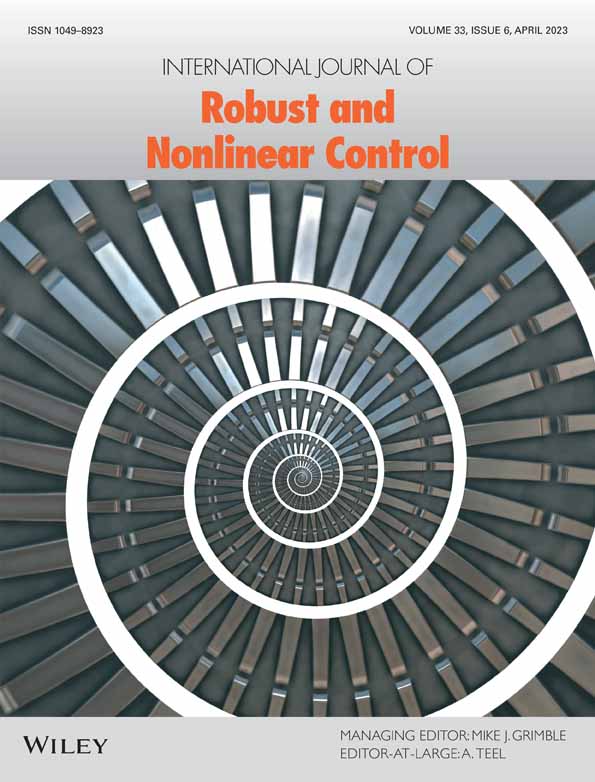Dual-mode robust model predictive control for the tracking control of nonholonomic mobile robot
Funding information: National Key Research & Development Program of China, 2018YFB1700602; National Natural Science Foundation of China, U22A2048
Abstract
In this article, a novel dual-mode robust model predictive control (MPC) approach is proposed for solving the tracking control problem of nonholonomic mobile robot with additive bounded disturbance. To reduce the negative effects of disturbance, and drive the state of real system closer to the one of nominal system, a robust reference signal is introduced into the cost function of MPC. In order to reduce the computation burden caused by online optimization of MPC and further improve the tracking accuracy, a dual-mode control strucuture consisting of the robust MPC and the local nonlinear robust control is developed, in which the local nonlinear robust control law is applied within a specified terminal region. Finally, simulation results on the nonholonomic mobile robot are presented to show the validity of the proposed control approach.
CONFLICT OF INTEREST
The authors declare that they have no known competing financial interests or personal relationships that could have appeared to influence the work reported in this paper.
Open Research
DATA AVAILABILITY STATEMENT
Research data are not shared.




